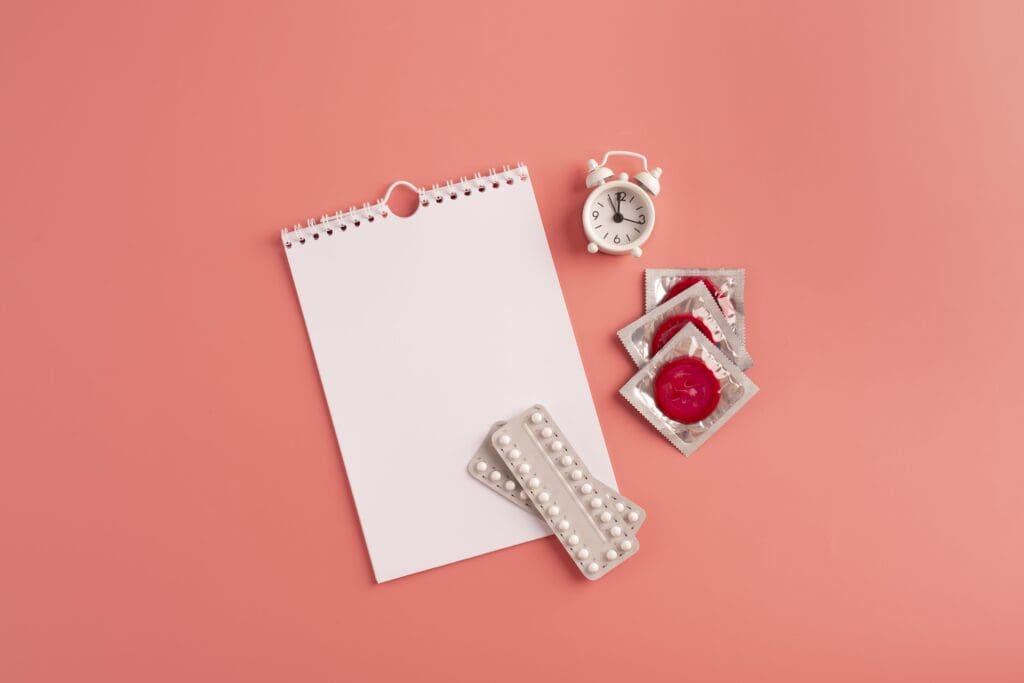
A Scar Under My Skin: A Muslim Woman’s Quiet Reckoning with Contraception
I don’t remember much from school SRE, except that it made most of us squirm in our seats and then laugh about it later.
The lessons were brief. The textbook diagrams of uteruses painted in red ink, the rushed mention of “safe sex,” and the plastic models I dared not to look at for too long. It was meant to prepare us for the future. But, no one spoke like me. No one was like me. The brown girl with the headscarf and questions she didn’t dare to ask out loud.
So most of what I really learned came from elsewhere: whispered half-truths from classmates, late-night Google searches, warnings from well-meaning aunties. The pill makes you “gain weight”. The pill makes you “bleed forever”. The pill makes you “crazy”. Nobody really knew what was true, but the fear stuck.
I got married in my early twenties. When it came to family planning, I knew I had to make a choice. I’d spent so much of my adolescence in silence — when it came to my body, my cycle, my desires. This time, I wanted to do it differently. I booked multiple appointments with a nurse. I asked every question I could think of, twice. I ruled things out slowly: not the pill, not the coil, not the patch. Eventually, I chose the implant.
It felt like the safest option. A small rod, tucked under the skin of my arm. No need to remember a pill. No drama. Just set it and forget it.
But my body did not forget.
Within weeks, the changes came thick and fast. I was crying all the time. Sudden, inexplicable tears in the middle of ordinary days. I felt like a storm cloud with skin. My mood dropped to depths I didn’t recognise. I felt angry, then numb, then filled with dread. I didn’t want to get out of bed, let alone shower.
It wasn’t sadness, though. It was something darker, heavier. I couldn’t sleep, or I slept too much. There were days I thought about unaliving. Days when I genuinely wondered if I was losing my mind. Days when I would stand, staring into the abyss, wondering if I was still the same person. I was in the midst of painful wedding season, already holding onto faith and sanity by the thinnest thread. And now I felt hijacked from the inside out.
It wasn’t just the mood. My once predictable menstrual cycle, which had anchored my understanding of fiqh for years, spiralled. There was spotting. Then bleeding. Then silence. The familiar boundaries between ḥayḍ and istiḥāḍah blurred. Trying to pray when I wasn’t sure I should. Trying to fast when I didn’t know if I could. The rulings I had studied in the textbooks now bled into my lived reality, muddled and messy. Because, when your own body becomes the case study, it feels different.
I had fallen through a crack, between medicine and religion, between silence and shame. I didn’t tell anyone. Not my doctors. Not my friends. Not even my sister. I handled it the way I thought I was supposed to: accepting that this is womanhood. Of course, it is!
It was only later — months later — when I sat with my husband and realised: perhaps this isn’t normal? We returned to the clinic to have the implant removed. That’s when they discovered it had been inserted incorrectly. It had nestled too deep, and the removal hurt more than I expected. When they finally tugged it out, it left a small scar on my arm. A faint line. Easy to miss if you weren’t looking for it.
But I see it.
That scar is my reminder.
It marks the moment I stopped accepting confusion about my body as the norm. The moment I decided that understanding women’s health — my health — wasn’t optional.
I started reading more. Studying. Asking the questions I’d been too scared to ask at 16. I poured myself into the sacred texts, not just for abstract knowledge but to make sense of my lived experience. I learned that Muslim women have always navigated these questions, with strength, with scholarship, and with nuance.
And I began to realise: so many of us walk this path alone.
We carry the weight of silence passed down by generations. We internalise that questions about our health are immodest. That confusion is a sign of weak faith. That being unwell, emotionally or physically, is something to hide. But this was never the Islamic way.
The Prophet ﷺ never dismissed a question from a woman about her body. In fact, it was women, like ʿĀ’ishah, Fāṭimah bint Abī Ḥubaysh, and the women of the Anṣār, who asked detailed, direct questions about menstruation, bleeding, discharge, pregnancy, and more. Their questions were preserved in our books of sacred law and ḥadīth. They were not shamed for their curiosity. They were honoured for it.
Knowledge, in Islam, is not a luxury. It is a right, and in many cases, an obligation. To know our bodies is to better worship Allah ﷻ. To understand our health is to protect His trust. The Prophet ﷺ said, “Indeed, your body has a right over you.” (Bukhārī)
So when we ask questions about contraception, periods, pregnancy, or menopause, we are not overstepping. We are fulfilling our duty. We are walking in the footsteps of women who were bold, faithful, and unashamed.
That implant, inserted wrongly and removed painfully, was what led me to shout about women’s health. For our health. Not in hushed tones, but in clear voices. I want Muslim women to feel safe asking their questions. I want us to know our bodies. To trust our faith. To live informed, dignified, healthy lives, not in spite of Islam, but because of it.
This is not just about the scar under my skin.
It’s about the healing that began when I chose to understand my body. When I chose to respect my whole self, faith, mind, and womb.
I hope my pain can be transformed into purpose, into something that builds, uplifts, and heals. That’s why I love what Taahirah stands for. It’s not just an app; it’s a movement. A call for more women to search for answers, to craft tech that speaks our language of health and faith, and to pave the way for a future where care is both sacred and accessible. If Taahirah is the first stepping stone in Islamic FemTech, then let it not be the last.
May Allah ﷻ reward every woman carrying pain in silence, guide us towards His knowledge, and make our efforts a means of ease. May He accept from us, forgive our shortcomings, and place barakah in every step taken for His sake.
This anonymous entry is the intellectual property of its author and is protected under copyright law. It may not be reproduced, distributed, or used in any form without prior written permission.

